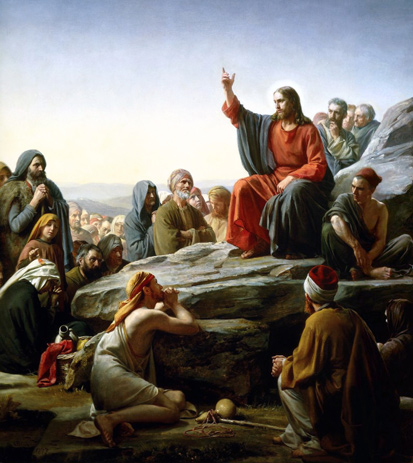The views expressed in our content reflect individual perspectives and do not represent the authoritative views of the Baha'i Faith.
If you want a guide who will help you find the inner truth you’re looking for, study the Founders of religion.
The Founders of the world’s great Faiths are not just people with interesting ideas, they are the Fountainheads of salvation, the Deliverers of the life-giving holy water upon which our thirsty souls depend. Millions upon millions of people follow them because their messages have resonated in the souls of human beings for hundreds and even thousands of years.
It will be difficult to arrive at your goal by studying the varying views of normal men. Over a thousand years ago, a great Hindu thinker observed:
As the thoughts of man are altogether unfettered, reasoning which disregards the holy texts and rests on individual opinion only has no proper foundation. We see how arguments, which some clever men have excogitated with great pains, are shown, by people still more ingenious to be fallacious, and how the arguments of the latter again are refuted in their turn by other men; so that, on account of the diversity of men’s opinions, it is impossible to accept mere reasoning as having a sure foundation. – Samkara, quoted in The Spiritual Heritage of India by Swami Prabhavananda.
 Our need for authoritative guides is great. Without them no human or spiritual progress can be made. We need a mooring, a solid hold to attach to against the harrowing winds and waves of our times, and the Founders of Religion provide that mooring.
Our need for authoritative guides is great. Without them no human or spiritual progress can be made. We need a mooring, a solid hold to attach to against the harrowing winds and waves of our times, and the Founders of Religion provide that mooring.
History reveals that God has always sought to accomplish His work of salvation in each age through a single divine agent an intermediary. We don’t know the names of all of God’s messengers, but we still have the teachings of several of the major ones during the past four millennia. Abdu’l-Baha writes:
…there have been many Holy Manifestations of God. One thousand years ago, two hundred thousand years ago, one million years ago, the bounty of God was flowing, the radiance of God was shining, the dominion of God was existing. – The Promulgation of Universal Peace p. 463.
The Qur’an too expresses the breadth of this process when it says: “We have dispatched a Messenger to every nation: Serve God and turn aside from the arrogant ones (16:36). In the oldest records of religion all that remains of these early intermediaries is a trace deeply interwoven with myth. Historians have no idea what Noah really did, nor what Krishna really did. But we know that they impressed those who knew them as God’s agents, and they revealed profound good and eternal truths.
The more recent Founders and heroes of religion are also surrounded with myth. Still, we can find a wealth of actual, authoritative teachings from these Founders of the great Faiths by focusing on the red letters of the Bible (in some editions the words of Jesus are printed in red), and on the text of the Qur’an. Both of those sources have enormous wellsprings of spiritual guidance and inspiration embedded in them; and by reading, studying and meditating on them, we can get a clearer picture of God’s truth.
In our age, the Baha’i writings have the unique distinction of authority, authenticity and accuracy. Baha’u’llah and Abdu’l-Baha both wrote original books, letters and tablets in Persian and Arabic, which have now been expertly translated into literally hundreds of languages. Abdu’l-Baha’s interviews, talks, lectures and public addresses were captured, sometimes verbatim. The Baha’i writings have, in their certifiable authenticity and clear provenance, set a new standard in the world for religious teachings that come directly from their original source. Read them, and you’ll see, in their majesty and great beauty and deep insight, a true guide to spiritual discovery:
Therefore, in this age of splendours, teachings once limited to the few are made available to all, that the mercy of the Lord may embrace both east and west, that the oneness of the world of humanity may appear in its full beauty, and that the dazzling rays of reality may flood the realm of the mind with light. – Abdu’l-Baha, Selections from the Writings of Abdu’l-Baha, p. 59.
















Comments
Sign in or create an account
Continue with Googleor